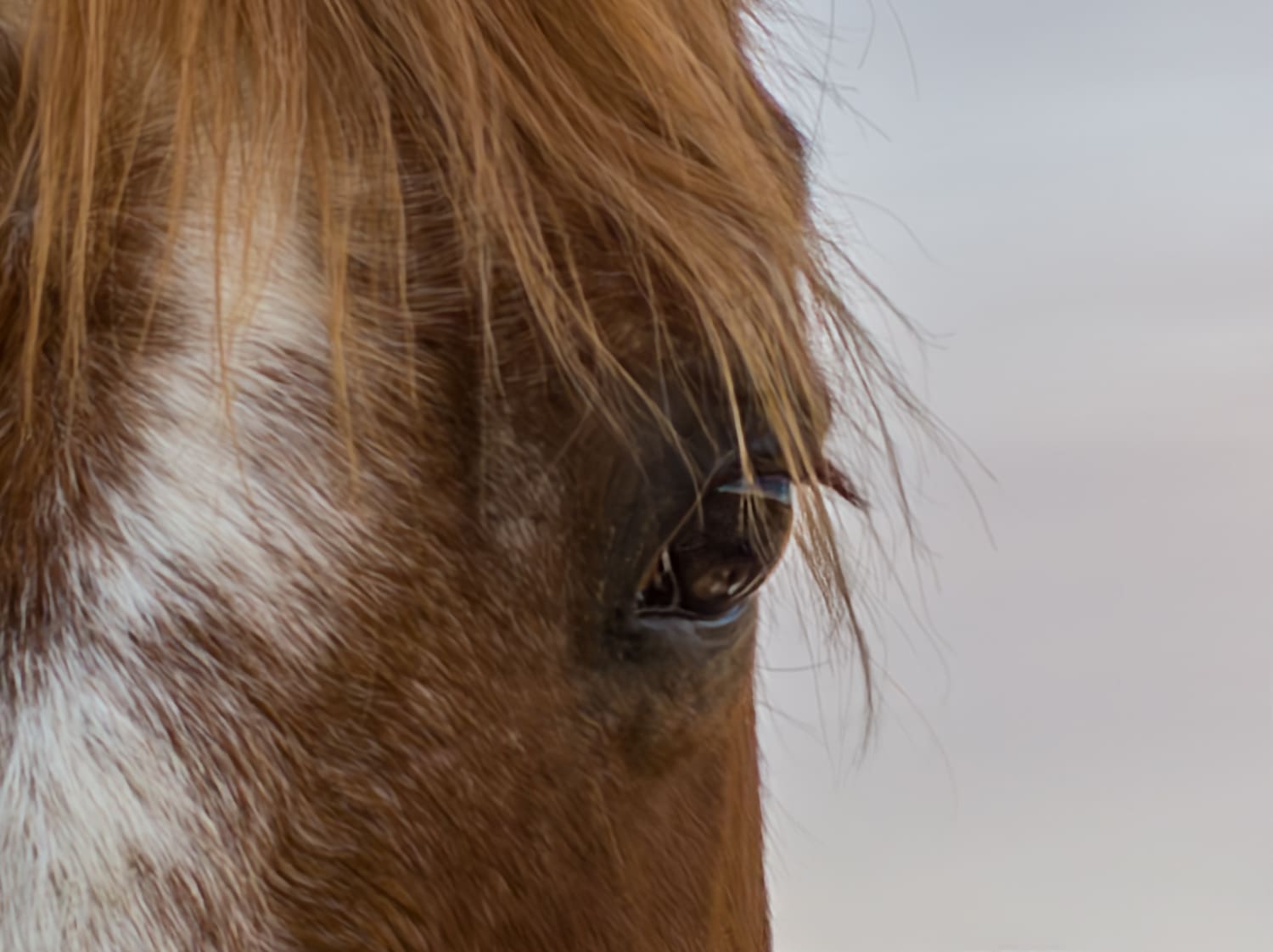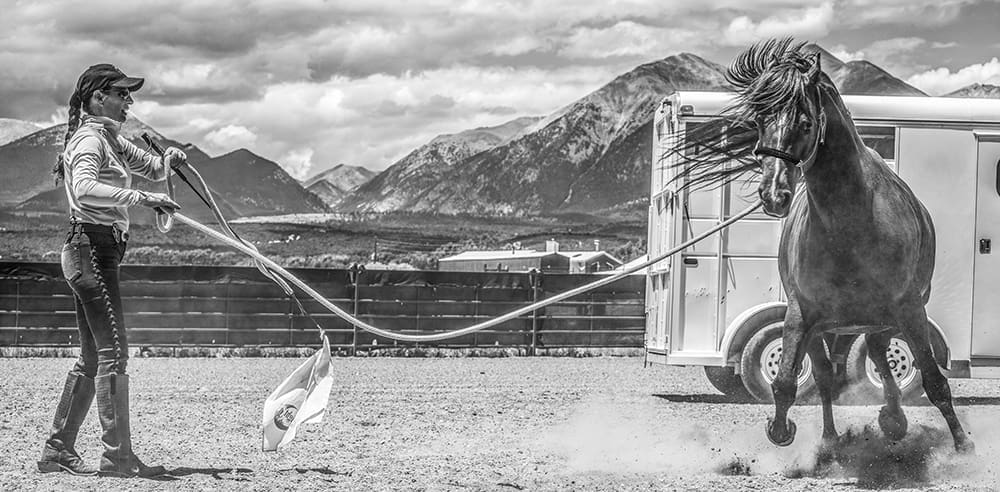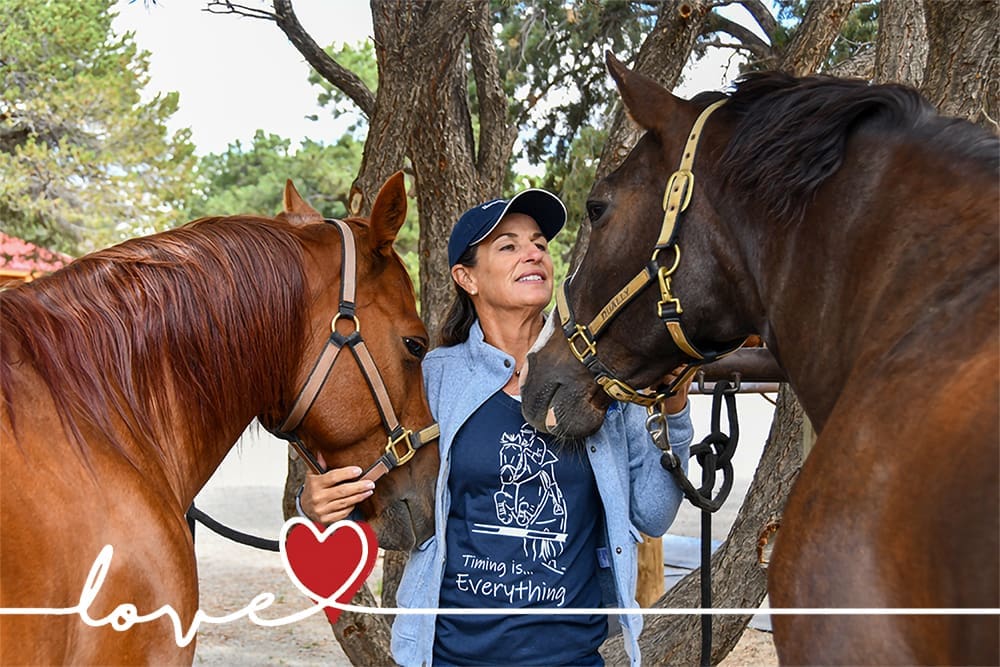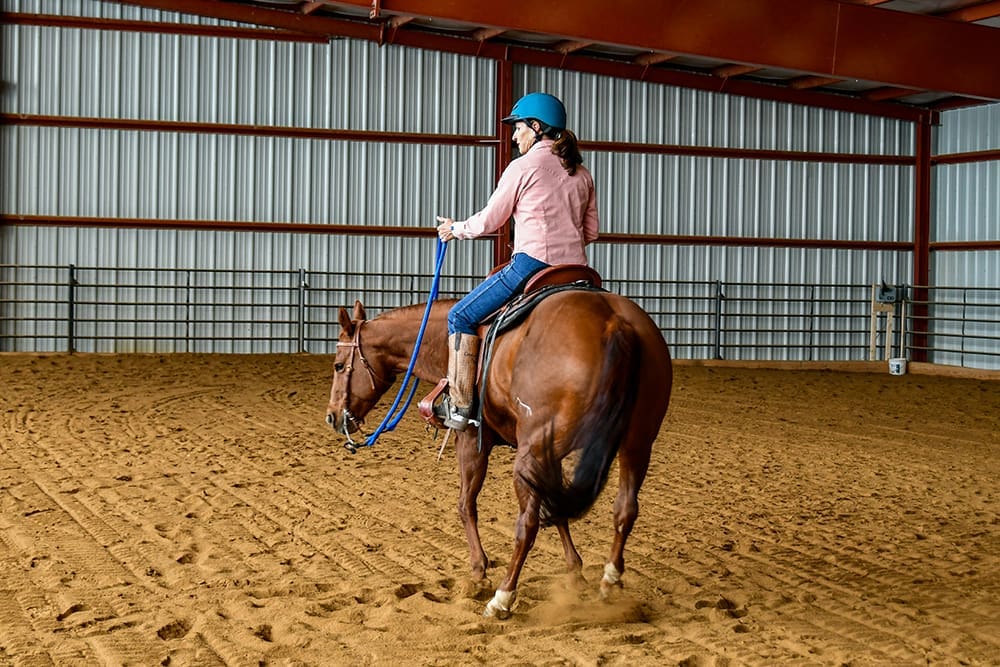I first started riding horses more than half a century ago. I was a shy and introverted kid, so growing up on a small horse farm was like heaven to me. The horses in the pasture were the only friends I needed and I learned a lot about their herd life from my tree fort, in the shade of a towering live oak tree in our pasture—a favorite hangout of the herd on hot days.
That was way back in the day when kids were left free to climb any tree that was climbable and play outdoors without supervision, as long as you were home by 6:00 for dinner. It was also only a few decades removed, one generation really, from the time when horses were work animals—beast of burden, helping to pave the way to civilization.
The human relationship to horses was much different back then and I have seen my own philosophical outlook change through the decades, as horses have acclimated to new societal norms wherein horses fill a much different role in our society.
Just as our knowledge of human psychology, the brain and human behavior has grown exponentially in the last half century, so has the study of animal behavior evolved. It wasn’t long ago that behaviorists believed that animals did not feel pain and suffering, or that animals may share the same emotions as humans—like happy, sad, angry, bored or frustrated.
It’s only been in the last decade that some behaviorists have begun to accept the idea that animals can form friendships—defined as a reciprocal altruistic relationship between two animals of the same species that are not related by blood. A friendship based on, “I’ll get your back if you get mine,” or benefitting others at a cost to yourself. Not all species demonstrate this kind of relationship, but research has shown that horses do. This comes as no great surprise to anyone who has been around horses a lot.
Thirty years ago, if you asked me if it was okay to keep your horse at home alone, without the companionship of other horses, I would’ve said, “Sure, he’ll get used to it.” Today, my answer would be much different.
Horses are incredibly good at adapting to their environment and to changes in society. They are the most sensitive domesticated animal and the most easily DE-sensitized. They can adapt rapidly from a hot climate to a cold one; they can get used to the most disturbing stimuli in minutes. Over the millennium, their relationships with humans have evolved from a source of food, to transportation, to mechanisms of war, to sport, to entertainment, to items of luxury, to powerful tools of therapy.
Today, our use of horses is much different and our understanding is much greater. Plus, we have the undeniable luxury of not being reliant on our horses for surviving and thriving. We can afford more perspective on the horse’s well-being.
Indisputably, horses are herd animals. They get great comfort and security from the herd and they are very tactile animals—rubbing and massaging each other, nipping and biting, providing shade and tail swishing to each other.
Their herd behaviors are very distinctive and the structure of the herd is quite complex—rankings within the herd, cooperative behavior, bonding. Seeking acceptance into the herd is a huge instinctive drive of horses and banishment is the ultimate punishment. Simply put, horses are happiest in the herd, where they can touch other horses, push each other around and give each other comfort.
There’s safety in numbers and all horses know that. He feels safest when other horses surround him and he may only lie down to sleep if another horse remains standing. He relies on the senses of the other horses in the herd to help keep him safe, so that he does not have to be hyper-vigilant at every waking moment.
I’ve known horses that have adapted well to living alone. I’ve also seen horses that are frantic or severely depressed. Often, circumstances dictate the living arrangements for the horse and not ideals. Not all horses can run free 24/7 in belly-deep grass with a herd. Many horses are separated from the herd for their own health or well-being. Some may be separated because they are aggressive or dangerous. Often health and nutrition, as well as daily usage, means that our horses are separated part or most of the day.
Location and logistics sometimes limit the choices we have, but what most horses want is life in the herd. So how would I answer the aforementioned question today, about whether or not it is okay to keep your horse alone? I’d say, you owe it to him to provide some sort of 24/7 companionship, even it if cannot be another horse.
A companion horse is best—they share the same behaviors and motivations. An older horse that needs a home, an infirm horse that can’t be ridden, better yet, a friend’s horse that will share chores with you or off-set your costs. A miniature horse is perfect, since they don’t eat much, but the upfront cost may be high. A miniature donkey can fill the bill as well.
There are lots of options to fill the horse’s need to live in a herd and deciding what is right for you and your horse may be challenging. If all else fails, get a goat, a duck or a pig. I’ve even seen horses bond with barn cats, but a similar species is best.
Goats have long been used as companion animals for race horses that are kept in stalls. To help keep the racehorse calm in his isolated stall, you give him a goat for a roommate. The term, “Get your goat,” refers to the nasty trick of stealing your opponent’s goat the night before the big match race, thus leaving the horse frantically pacing all night and exhausted on the day of the race.
The biggest downside to horses living in the herd is their undying mission to stay with the herd. This is an instinctive behavior of horses, but highly inconvenient and sometimes downright irritating to us humans. Barn sour, herd-bound, tantrum throwing, nappy horses are a drag. Fortunately, not all horses are that bad.
To me, the ultimate honor my horse can bestow on me, comes with his willingness to leave the herd with me—happily and voluntarily. To do as I ask, take me where I want to go and respond to my signals, because I give him the same sense of safety and security he gets from the herd. To get that kind of relationship with your horse, you must give him fair and strong leadership, give him the comfort, the structure, the praise and the discipline he deserves. Once again, horses make us better people.
But in his free time, let him be with other horses as much as you can. As much as I want my horses to look up to me and work hard for me, I know I can never replace the contentment he gets from being a part of the herd.



